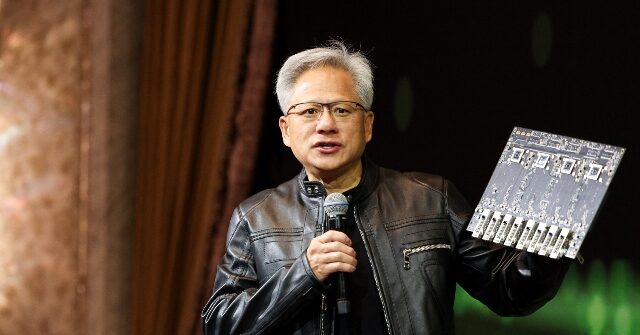At least $1 billion worth of Nvidia’s advanced artificial intelligence processors were smuggled into China in the three months following the tightening of chip export controls by the Trump administration.
The Financial Times reports that despite efforts by the Trump administration to curb China’s high-tech ambitions through tightened export controls, a roaring black market for U.S. semiconductors has emerged, with Nvidia’s B200 chip becoming the most sought-after and widely available processor in China.
The Financial Times analysis, based on dozens of sales contracts, company filings, and interviews with multiple people directly involved in the deals, reveals that in the three months after export controls were strengthened, Chinese distributors sold over $1 billion worth of Nvidia’s restricted AI chips, including the B200, H100, and H200 models.
These transactions were facilitated by distributors in China’s Guangdong, Zhejiang, and Anhui provinces, who sold the chips in ready-built racks containing eight B200s along with other necessary components and software. The current market price for such a rack ranges between 3 million to 3.5 million yuan ($489,000), representing a 50 percent premium over the average selling price of similar products in the U.S.
While it is legal to receive and sell restricted Nvidia chips in China as long as relevant border tariffs are paid, entities selling and sending them to China are violating U.S. regulations. Nvidia has maintained that there is no evidence of any AI chip diversion and that the company is not involved in or aware of its restricted products being sold to China.
The high demand for B200 chips can be attributed to their performance, value, and relatively easy maintenance compared to more complex models. Leading Chinese AI players with global operations are unable to order these chips in a legally compliant manner, install them in their own data centers, or receive Nvidia’s customer support. As a result, third-party data center operators have become key buyers, providing computing services to smaller companies in tech, finance, and healthcare that do not have strong compliance requirements.
Breitbart News previously reported that China’s popular DeepSeek AI is allegedly powered by smuggled Nvidia chips:
Now, AI thought leaders are throwing cold water on DeepSeek’s claims. Among them is Scale AI CEO Alexandr Wang, who claims that DeepSeek is covertly using Nvidia’s high-performance H100 chips, despite US export restrictions that limit their availability to China. The revelation has ignited a heated debate about the future of AI innovation and the impact of US regulations on the global tech landscape.
According to Wang, DeepSeek is currently utilizing around 50,000 Nvidia H100 GPUs, a significant number considering the export controls in place. He further stated that DeepSeek workers are unable to publicly discuss their use of these chips due to the US regulations. After a clip of Wang’s statement was posted to X, Elon Musk replied agreeing with Wang’s assertion.
Industry experts have noted that Southeast Asian countries have become markets where Chinese groups obtain restricted chips, prompting discussions by the U.S. Department of Commerce to add more export controls on advanced AI products to countries such as Thailand. Malaysia has also introduced stricter export controls targeting advanced AI chip shipments from the country to other destinations, particularly China.
Despite these efforts, Chinese industry insiders believe that new shipping routes will be established, with supplies already starting to arrive via European countries not on the restricted list. The potential tightening of export controls on Southeast Asian countries has also contributed to buyers rushing to place orders before such rules take effect.
The scale of the black market for U.S. semiconductors in China exposes the limits of Washington’s efforts to restrain Beijing’s high-tech ambitions. While the export controls have had some effect, such as preventing leading Chinese AI players from legally purchasing and installing restricted chips in their own data centers, the demand for cutting-edge technology remains high, with risk-taking middlemen stepping in to meet this demand.
Read more at the Financial Times here.
Lucas Nolan is a reporter for Breitbart News covering issues of free speech and online censorship.
Read the full article here


